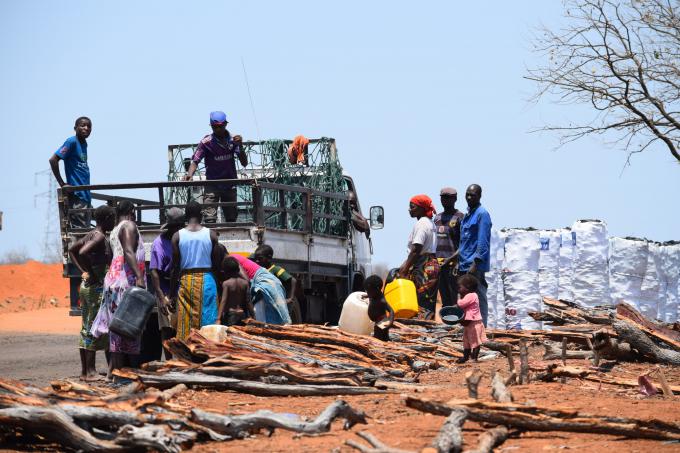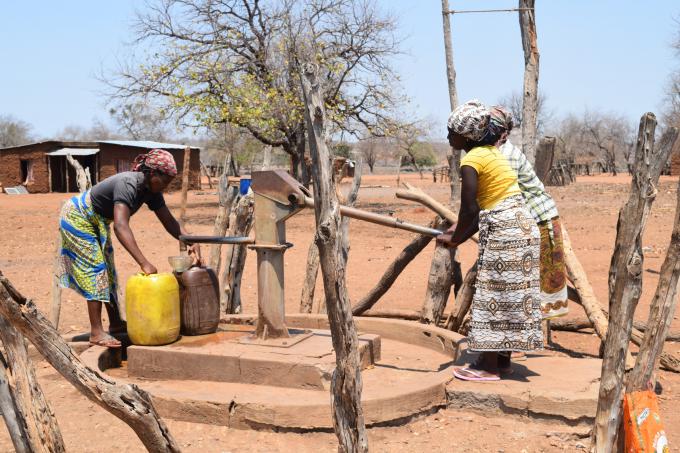Saving lives through livelihoods support
Due to the failed rains in 2015, farmers in Mozambique failed to get good yield form their crop in the field. This led to severe shortage of food and starvation in Mozambique.
Between June and July 2016, The Mozambican government distributed 518 tonnes of food aid to around 50,000 Mozambicans affected by the severe El Nino drought in the southern and central regions of the country.
Save the Children under the umbrella of COSACA has been implementing programs in Gaza province to help mitigate the effects of the drought. A major component of this has been Food Security and Livelihoods (FSL). Since January 2016, over 10,000 households have benefitted from livelihoods support and this has in turn impacted on their health and education especially for children. 
Tsokati village is in the heart of Gaza province and has felt the full effect of the El Nino drought. Before the drought, the community members practices farming as their main economic activity. When the drought set in, the community faced starvation and accompanying health conditions. Mr. Alexandre Ngovene explains that they have only survived through the livelihoods interventions of COSACA.
“Our crops in the field failed and we had nothing to eat. We got restricted to having a meal per day if we were lucky and our children dropped out of school” said Ngovene.
He is not the only one who has these sentiments. Doli Macamo who is a single mother also shares in how the COSACA livelihood interventions has kept her and her family alive. “I receive food rations which have kept our stomachs filled and the children are able to go to school now. Previously they always complained of hunger and could not concentrate in class”.
As the first phase of COSACA response ends in October 2016, plans have already been put underway to expand the reach of its three key areas of Water and Sanitation, FSL and education.
To help communities like Tsokati, COSACA dug a borehole within the community to reduce the distance they had to cover to access clean drinking water.

Women fetching water from a rehabilitated borehole in Tsokati Village
Alfredo Sebastiao explained how the village was at qualms to fend water. “We had to walk for 8kms to get water for home use. Eventually we lost all the livestock we had and those that survived had to be sold to avoid further loses” he said.
The rehabilitation of boreholes, was accompanied by creation of water committees who are charged with the responsibility of maintaining the borehole even after COSACA intervention ends.
Water harvesting in school and health centers will also be implemented in partnership with Girls Education Challenge, an Education project implemented by Save the Children in partnership with Ministry of Education and Human Development and MAMANE, a health and nutrition project implemented by Save the Children in partnership with Ministry of Health.
“Without COSACA intervention I am not sure what would have happened to me and my family. We have benefited immensely and we are forever thankful and grateful” – Doli Macamo.
Save the Children in Mozambique, under COSACA umbrella rehabilitated 30 boreholes in Gaza province to address the critical scarcity of water due to El Nino impact.
About COSACA
COSACA consists of the international aid organizations CARE International, Oxfam, Save the Children and Concern Worldwide. The consortium began its work in Mozambique in 2007, delivering emergency and large-scale humanitarian assistance to communities affected by floods. COSACA has responded to reoccurring floods since 2013, and prepares communities for future natural disasters. Since July 2015, COSACA has been addressing the needs of people affected by the worst drought in 35 years. The
Agencies are pooling their respective technical expertise to ensure an effective emergency response. COSACA is collaborating closely with the national relief agency, the National Disaster Management Institute (INGC). The COSACA consortium is supported by DFID.
Story by Edward Ahonobadha
 Mozambique
Mozambique